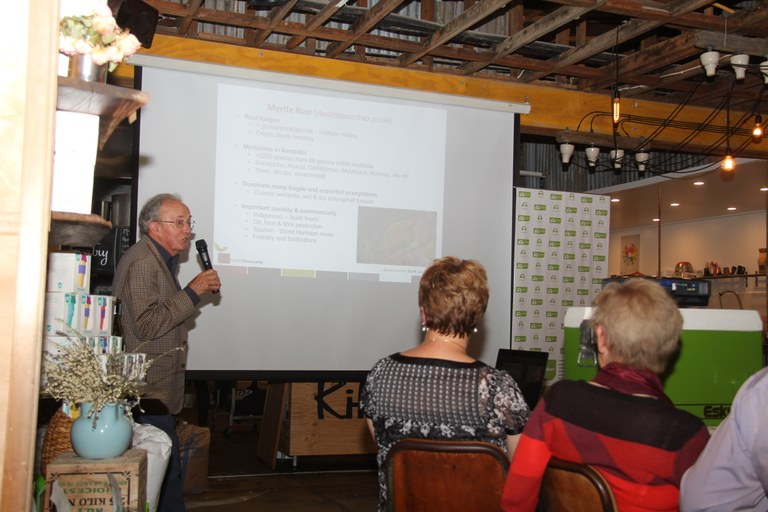
Biosecurity on the menu at Landcare Dinner
45 guests were treated to a lesson in biosecurity from Professor John Lovett guest speaker at the YAN Landcare Awards Dinner on Saturday 18th November.
Professor John Lovett,former chair of the Cooperative Research Centre for Plant Biosecurity lives in the Yass Valley and has had an interesting and varied background in biosecurity research both in Australia and internationally.
His talk reflected on the increasingly difficult task confronting those on the frontline of plant biosecurity, compounded by the rapid movement of people and products across the globe, with the vagaries of a changing climate adding further complexity.
Professor Lovett expained the huge cost that breaches of biosecurity can have causing economic, social and environmental losses and including drastic reduction in biodiversity. As a sobering example, The Myrtle Rust (Puccinia psidii)incursion,an organism which can infect all members of the Myrtaceae, the most important family in the Australian flora.
The Myrtle rust was first detected on a property on the central coast of New South Wales in late April 2010. Two years later the disease has been detected in numerous locations in Queensland and New South Wales ranging from commercial plant nurseries and public amenities to large areas of bushland. Mr Lovett explained that this particular breach of biosecurity will, inevitably, diminish biodiversity of flora and fauna over large areas of the continent, and that it could have been prevented if proper contigency plan was put in place.
Professor Lovett then went on to describe the The Khapra beetle (Trogoderma granarium), situation where the correct procedures where taken and the situation was prevented.
The take home message is that we all need to be vigilant and aware of these threats and be ready to act quickly if we notice something unusual. "We need people power, the call to arms for the whole community to work together to counter these threats is as great as ever,” he said.






